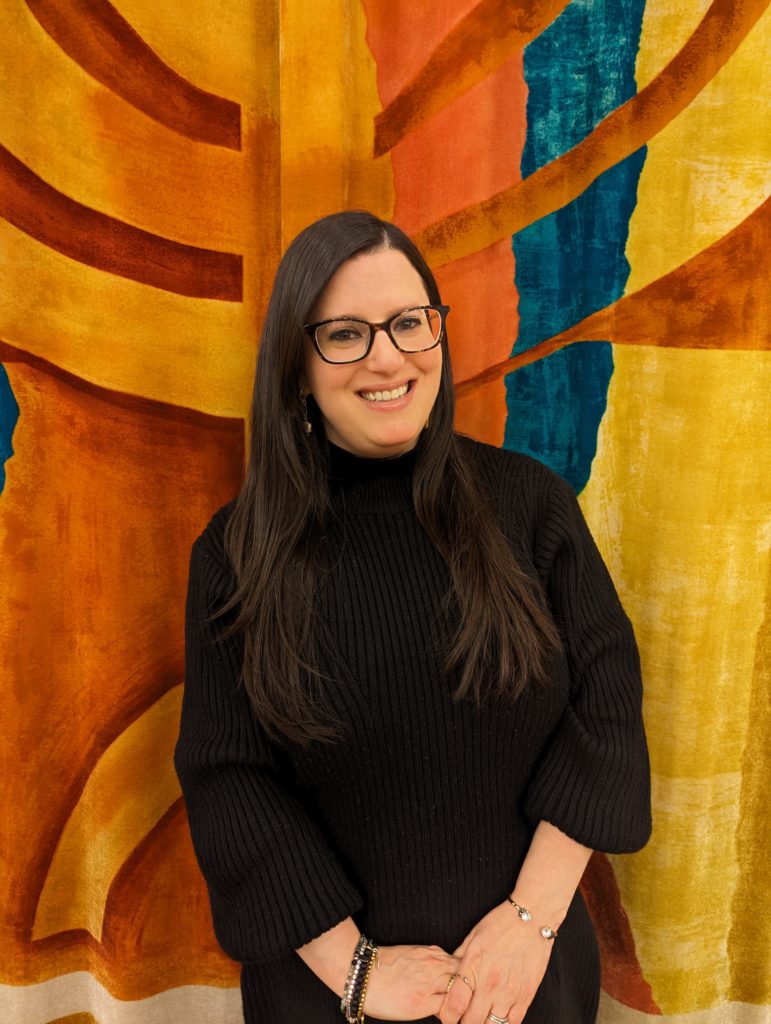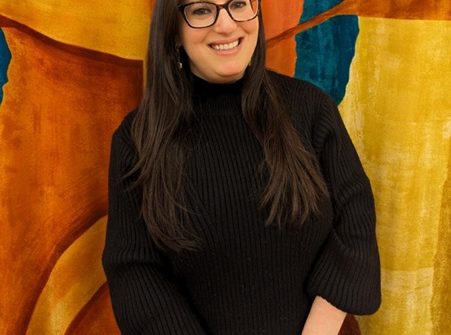Picture this: a mother in her early 30’s is at the local playground with her mother, who is in her early 70’s. The two women are chasing a toddler around the park on a bright, sunny afternoon.
The toddler approaches the playground equipment and starts climbing up the slide head first, rather than using the ladder to come down the slide feet-first.
Grandma cautions the toddler, saying: be careful!
Mom turns to grandma and corrects her: we don’t say “be careful” anymore, she admonishes. Instead, we say “what’s your plan here? Is that the safe way?”
Exasperated and confused, grandma sighs, scoops up her grandson, and places him at the top of the slide.
Later that day, grandma sees her grandson playing too aggressively with his little sister. She intervenes and says to him: “Hey, stop hitting your sister!”
Mom chimes in from the other room: “We don’t say stop in this house! We say: gentle hands, please.”
After dinner that evening, the adorable toddler in our story finishes his meal and announces: “all done!” Grandma beams at him and says, “Well done! I’m so proud of you.”
Mom tuts from across the table. “We don’t tell our kids we’re proud of them anymore – because that makes it all about us. Instead, we say: you should be so proud of yourself!”
–
Now before you assume anything about me or my mother, I should clarify that this exchange is an excerpt from a funny but completely fictional video clip currently making the rounds on social media, demonstrating the differences between what it calls “boomer parenting” and “millennial parenting”.
And while much of the content in the video is true-to-life, this clip resonated with me for a different reason.
It highlights the pressures and expectations involved in being a “good parent” – let alone being a “good person” – in the year 2024.
The expectations are many: we are inundated with cultural and societal messages that in order to achieve the coveted title of “good”, we should really try to be everything all at once: patient, sensitive, informed, engaged, hands-on, hands-off, gentle, stern, etc.
And these expectations can shift as generational norms ebb and flow – as we saw in the fictional interaction between a young mother and her mother. What was expected of our parents and grandparents can be quite different from what society expects of us today, in ways that can be both humorous and daunting.
Human behavior is at the same time an ancient art form and an ever-evolving science. What are the norms, rules, and values that should stay sacred and traditional? And what are the moving pieces – the advice, language, or behaviors – that change with every age and stage?
As I have navigated these first 15 months of motherhood,
I’ve noticed that many of my days have felt a bit like Yom Kippur:
a marathon, a physical endurance test –
How much food and sleep does a person really need in order to function? –
but also, on most days, an exhausting, comprehensive emotional reckoning.
I have been grappling with a pervasive and crippling guilt, not dissimilar to that which we inflict upon ourselves as we take stock of our behavior at this time of the year. Some might want to call it mom guilt or dad guilt or parent guilt – but the feelings are the same, no matter the name.
The questions keep me awake at night: have I done enough? Have I been present, attentive, helpful? Have I shown up for the people I love? Have I made the right decisions for myself, for my family?
Have I been a good mom?
But more importantly than that:
Have I been a good person?
–
As we crack open our brand new High Holy Days prayer books tonight, many of us might be asking ourselves that same question. Have I been a good person? Over the coming days and weeks, we will rifle through the pages of these sacred books, searching for the answer between the lines of text and song.
But we don’t have to search too hard for answers. These High Holy Days offer each of us an invaluable gift. As we reflect on ourselves and on the year that has passed, our tradition asks of us something far simpler than what society ever demands from us.
Judaism does not ask us to be perfect, or even to be explicitly good, on these High Holy Days.
We are only asked to be good enough.
What’s the difference?
It’s the acknowledgment that, as Voltaire put it famously, “perfect is the enemy of the good”.
In striving for our personal “good enough”, rather than some far-off ideal of perfection, we can stave off that enemy which keeps us convinced that no matter what we do, it will never be enough; we will never be enough. It’s hard to believe sometimes, and I often need to hear it too, but good enough really is good enough.
–
In 1953, pediatrician and psychoanalyst Donald Winnicott coined the term “the good enough mother”. In the course of his research with mothers and babies, Winnicott realized that children actually benefit from their mothers failing them in small, manageable ways. An article from the Seleni Therapy Training Institute expands on this theory:
“When our babies are infants, we try to be available constantly and respond to them immediately. As soon as they cry, we feed them or snuggle them or change their diapers – in other words, we do whatever it takes to help them feel better. This is important because it teaches our children that they are safe and will be cared for.
The thing is, we can’t sustain this level of attentiveness to our children forever, nor should we. That is precisely Winnicott’s point. He believed that the way to be a good parent is to be a good enough parent. Children need their parents and caretakers to fail them in tolerable ways on a regular basis so they can learn to live in an imperfect world.
Children need to learn, in small ways every day, that the world doesn’t revolve around them, that their every request won’t be honored, and that their behavior impacts other people. They need to learn – through experience – that life can be hard, that they will feel let down and disappointed, that they won’t always get their way, and despite all of that (or perhaps because of it) they will still be ok.
If our children never have these experiences, and if their every need is met every time, they will have no ability to manage the challenges that will inevitably arise. They won’t learn that it’s ok to feel bored or annoyed or sad or disappointed. They won’t learn, time and again, that life can be painful and frustrating, but they’ll get through it.
In short, building our children’s resilience is the gift of the good enough parent.
And there’s one other important point we need to remember about the good enough parent – she’s not only a gift to her children, but she’s also unavoidable. It is, quite simply, not possible to do better than good enough. Perfection is not an option.”
–
There is so much we can learn from the example of the good enough parent. The lessons in disappointment, failure, boredom, mediocrity – these are all things that we as adults continue to navigate every day. So many of us are scared of failure in our home lives or at work, scared of letting down those around us, scared of the moments that bring us face to face with our shortcomings. But without these experiences, we and those who come after us would be bereft of the gift of resilience – and also of the possibility of eventual repair.
In an article called “Why ‘Good Enough Parenting’ Needs To Be A Movement”, psychologist Christa Balis writes:
“When [we talk] about opportunities to “repair,” [we’re] using a common term in psychology circles, referring to the process of turning mistakes into resolutions for change. Guilt won’t redeem us, but repair will. If you were a perfect parent, that would be far more damaging to your child than the opportunity to right what has gone wrong. We do this by repairing, by going to your child and saying, ‘You know what? That thing I did was really not OK. Here’s why it wasn’t OK. I’m sorry, and this is what I’m going to do moving forward.’” Repairing, resolving or making amends is the crux of good-enough parenting because when we transform our mistakes and flaws into learning opportunities, we model problem-solving, creativity and emotional regulation for our kids, and there’s often no better classroom than our own homes.”
The psychological definition of repair – of turning mistakes into resolutions for change – is also incredibly liturgical. To me, it sounds a lot like the process of teshuvah – especially as it is laid out by Maimonides, who wrote that teshuvah is completed in three main stages: confession, regret and a vow not to repeat the misdeed. The true penitent, Maimonides says, is the one who finds himself with the opportunity to commit the same sin again in the future, yet declines to do so. This is how we know that true teshuvah has been done.
–
Adonai, Adonai, El rachum v’chanun erech apayim v’rav chesed v’emet.
With those words we return to a God who we are told is compassionate, forgiving, slow to anger – who fully accepts us in love. Can we mirror these qualities in how we act towards others, as well as how we speak to ourselves? Can we learn to be content with something less than perfection, so that we can be gentler to ourselves as well as to those around us?
Proverbs 24:16 teaches us: ki sheva yi’pol tzadik v’kam. Seven times the righteous person falls and gets up. So it is with us as we enter into these Days of Awe: we have fallen so many times this year, but during these sacred days we get back up again. And as we do so, we lift up our eyes towards a vision of a repaired world, of repaired relationship, and of reconciliation within ourselves: not towards a world perfected, but a world repaired: not towards good, but rather, towards good enough. Because – I promise you – good enough really is good enough.
Shana tovah.
1. “The Gift of the Good Enough Mother” — Seleni Institute
[https://seleni.org/advice-support/2018/3/14/the-gift-of-the-good-enough-mother]
2. “Why Good Enough Parenting Needs to be a Movement” — Christa Balis
[https://www.todaysparent.com/family/parenting/good-enough-parenting/]




